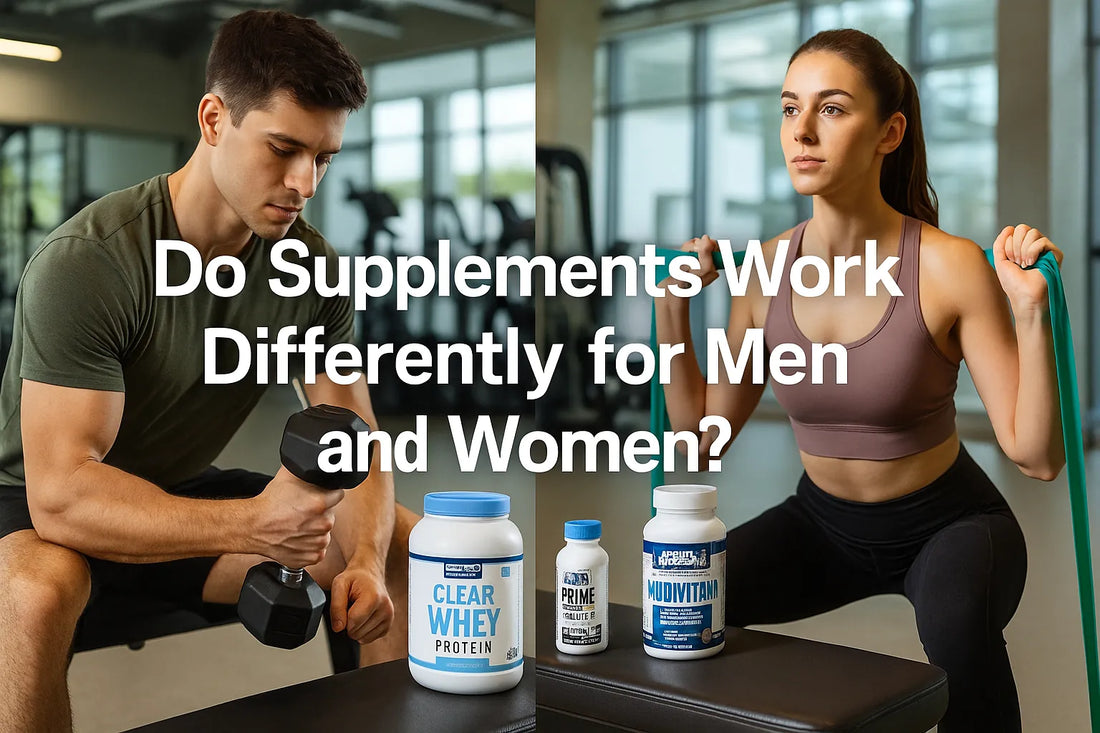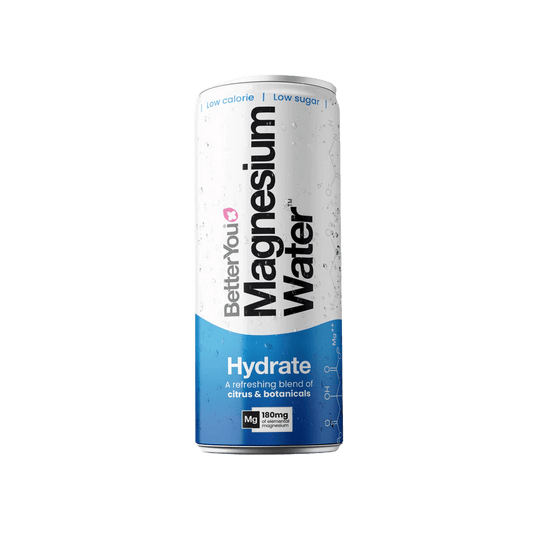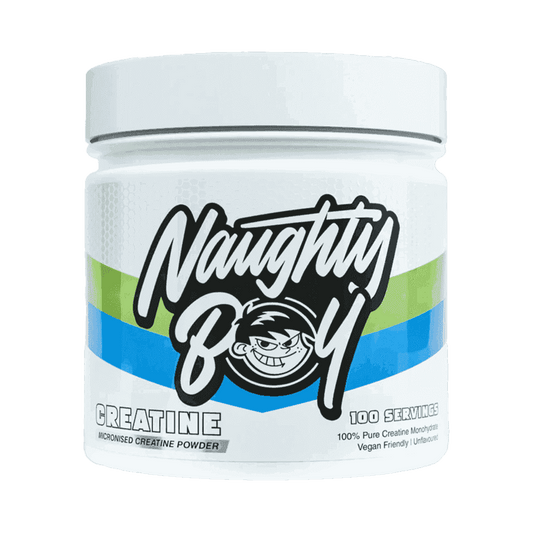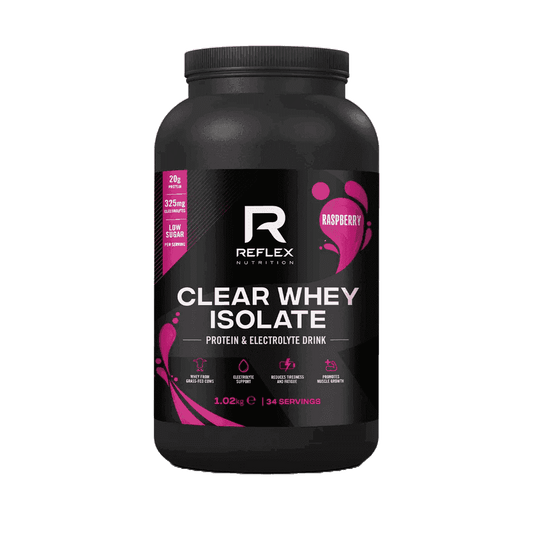Walk into any supermarket or supplement store, and you’ll see it immediately: shelves of “For Men” and “For Women” products. Blue bottles promising strength and vitality. Pink tubs claiming beauty and energy. But here’s the real question—are these gendered supplements backed by science, or are they just clever marketing?
The truth is somewhere in between. While there are genuine biological differences between men and women—think iron needs, folic acid, and hormonal influences—most supplements aren’t gender-exclusive. Protein works the same way in female muscles as it does in male ones. Creatine fuels strength for both sexes. Magnesium calms nerves regardless of gender.
This blog breaks down the science behind gendered supplementation, what’s worth paying attention to, and what’s nothing but packaging.
What’s the Difference Between Men’s and Women’s Supplements?
At a glance, gendered supplements often look the same—multivitamins, protein powders, omega-3, magnesium. The difference tends to come down to:
-
Iron levels → Women of reproductive age typically need more iron due to menstruation. Men, on the other hand, don’t need high supplemental iron unless deficient.
-
Folic acid → Women of childbearing age are advised to ensure sufficient folate intake to support reproductive health.
-
Calcium → Slightly more emphasized in women’s supplements for bone health, particularly post-30s.
-
Marketing claims → “Energy + vitality” vs “beauty + wellness.”
For most supplements, though—protein, creatine, magnesium, omega-3—the benefits are universal. Your muscles and metabolism don’t care about the colour of the packaging.
Do Men and Women Really Need Different Multivitamins?
This is where nuance matters. Men and women both need the same core vitamins and minerals—vitamin D, B12, zinc, magnesium, vitamin C. But dosage priorities shift slightly:
-
Women (20s–40s) → Higher iron and folate can be useful, especially during menstruation or pregnancy planning.
-
Men → Often marketed lower-iron blends, since excess iron can cause problems if not needed.
But the big picture? The majority of nutrients are the same. Instead of fussing over “his” and “hers” bottles, focus on quality and breadth. A high-quality daily product like Applied Nutrition Multivitamin covers both sides of the equation, making it a far smarter choice than falling for gimmicky labels.
Are Gendered Vitamins Necessary or Just Marketing?
Here’s the blunt answer: for 80% of people, it’s marketing.
The exceptions are very specific (prenatal vitamins for pregnancy, higher iron for menstruating women, or medical deficiencies). Outside of that, “Men’s Energy Multivitamin” and “Women’s Wellness Multivitamin” are usually just branding with minor tweaks in dosage.
In reality, what matters most is whether your vitamin:
-
Covers daily essentials like B12, vitamin D, zinc, and magnesium.
-
Uses quality forms your body can absorb.
-
Matches your individual lifestyle and diet.
Can Men Take Women’s Multivitamins?
Yes—there’s nothing unsafe about men taking a multivitamin labelled for women. The only potential concern is iron content. Men who don’t need extra iron may end up with more than necessary if their diet is already rich in it.
That said, if a man picks up a women’s formula in a pinch, he’ll still get the benefits of the core nutrients like B vitamins, vitamin D, and zinc. It’s far better to take a “women’s” multivitamin than nothing at all.
Can Women Take Men’s Multivitamins?
Again, the answer is yes—but with a catch. Women taking a men’s formula may miss out on enough iron or folate, particularly if they rely only on that multivitamin without balancing their diet.
If a woman is vegetarian or has heavier menstrual cycles, iron supplementation becomes more important. A “men’s” vitamin might not cut it. In those cases, a broad-spectrum product like Applied Nutrition Multivitamin ensures there’s no gap.
Transition to Part 2
So far, we’ve unpacked the basics:
-
Multivitamins are mostly universal, with small adjustments around iron and folate.
-
Gendered vitamins are often more marketing than necessity.
-
Men and women can technically take each other’s supplements without harm, but quality matters more than labels.
In Part 2, we’ll tackle the more controversial areas:
-
What happens if men take prenatal vitamins or women’s probiotics?
-
Do men’s multivitamins really “work”?
-
Are protein and creatine gender-specific or universal?
-
Which supplements are actually worth it—regardless of sex?
And, most importantly, we’ll break down a no-nonsense supplement stack that works just as well for women as it does for men.
Do Supplements Work Differently for Men and Women? (Part 2)
In Part 1, we tackled the biggest question—are gendered supplements real or just marketing hype? We learned that while there are small differences (iron, folate), most supplements are universal. Now let’s go deeper into the myths, the science, and which products actually deserve a place in your stack.
What Happens if a Man Takes Women’s Prenatal Vitamins?
Prenatal vitamins are formulated with pregnancy in mind: higher folate, iron, and sometimes DHA for foetal development. If a man takes them, nothing dangerous happens—he’ll still get the vitamins and minerals.
The problem is excess. Too much iron can cause constipation or digestive discomfort, and higher folate levels aren’t particularly useful for men. Men don’t need prenatal blends; they’re not harmful, but they’re unnecessary. A balanced product like Applied Nutrition Multivitamin makes far more sense for everyday use.
What Happens When Men Take Women’s Probiotics?
Probiotics don’t really have a gender. Gut bacteria isn’t male or female—it’s about strains that support digestion, immunity, and overall gut health. Marketing sometimes slaps “for women” on probiotics if they contain strains targeted at urinary or vaginal health, but in general, both men and women benefit from probiotic support.
👉 Translation: if you’re a man and grab a women’s probiotic on holiday, it’ll still do its job. But for general gut support, daily snacks like The Protein Ball Co Keto Balls (which include fibre and protein to feed good gut bacteria) work just as well.
Do Men’s Multivitamins Work? Are They Worth It?
Yes—but the same way any quality multivitamin works. They provide essential nutrients that might be missing from your diet. The “for men” label usually just means:
-
Slightly less iron
-
Slightly more zinc or B vitamins (for energy/immune support)
The better question is: is the formula high-quality? A trusted, broad-spectrum blend like Applied Nutrition Multivitamin is far more important than chasing labels.
What’s the Best Multivitamin for Men? Women?
For men: a formula that covers vitamin D, B12, zinc, and magnesium, without unnecessary iron.
For women: one that includes iron and folate support.
In practice, Applied Nutrition Multivitamin covers both. It’s simple, effective, and avoids the over-complication of gendered branding.
Creatine for Women vs Men
Here’s where one of the biggest myths exists: “Creatine is for men.” That’s completely false.
Creatine works by saturating your muscles with extra phosphocreatine, which your body uses for high-intensity energy. This happens in everyone, regardless of sex. In fact, women often benefit more because they start with naturally lower creatine levels (since they typically eat less meat).
👉 Naughty Boy Prime Creatine is one of the smartest supplements women can add to their routine—it supports strength, recovery, and even cognitive performance.
Protein Powder for Women vs Men
Another marketing trick is the so-called “lean shake” for women, often sold in smaller tubs with “slim” branding. At the end of the day, protein is protein. Whether it’s whey, casein, or plant-based, your body breaks it down into amino acids.
-
Reflex Clear Whey Protein → great for both sexes who want a light, refreshing shake.
-
Per4m Whey Hydrate → a more complete option combining protein and electrolytes for recovery.
The only difference between men and women is how much protein they need, not what kind.
Do Men and Women Metabolise Supplements Differently?
On the whole, no. A protein shake digests into amino acids for both men and women. Creatine replenishes muscle energy stores in everyone. Magnesium relaxes muscles and calms the nervous system regardless of sex.
Where differences do exist is mainly in:
-
Iron needs (higher for women pre-menopause)
-
Calcium (emphasised more for women post-menopause)
-
Hormone-driven metabolism (slight differences in how fats are stored or carbs are used, but supplements still work the same way)
Which Supplements Are Actually Worth Taking?
Forget the flashy “men’s” and “women’s” tubs. Focus on the proven essentials:
-
Applied Nutrition Multivitamin → fills daily nutrient gaps.
-
Supplement Needs Omega 3 → brain, heart, inflammation, circulation.
-
BetterYou Magnesium Water → recovery, sleep, stress support.
-
Naughty Boy Prime Creatine → strength, power, cognitive benefits.
-
Reflex Clear Whey Protein / Per4m Whey Hydrate → practical protein intake.
These five cover almost every goal: strength, recovery, wellbeing, and long-term health—without the marketing gimmicks.
Conclusion: Forget the Label, Focus on the Nutrient
Supplements don’t magically work differently based on gender. Your body doesn’t know whether a capsule came in a pink bottle or a blue one. What it does know is whether you’re providing it with the nutrients it needs to perform, recover, and stay healthy.
So, what’s the truth?
-
Multivitamins: useful for everyone, but iron/folate matter more for women.
-
Protein: essential for muscle repair—same benefits for both sexes.
-
Creatine: equally effective, sometimes more beneficial for women.
-
Magnesium, omega-3, recovery aids: universal essentials.
Skip the gender marketing. Build your supplement stack around nutrient needs, not labels.
FAQ: Supplements for Men vs Women
1. Do men and women need different supplements?
Mostly no. The basics—protein, creatine, omega-3, magnesium—are the same. Only iron and folate differ significantly.
2. Are gendered multivitamins worth it?
Not really. A quality broad-spectrum multivitamin covers both men and women.
3. Can men take women’s supplements?
Yes. The only concern is unnecessary iron in women’s formulas.
4. Should women take creatine?
Absolutely—creatine is just as effective, sometimes even more, for women.
5. What’s the best protein powder for women?
The same as men. Reflex Clear Whey Protein and Per4m Whey Hydrate are excellent options.
6. Do probiotics differ for men and women?
No—gut bacteria is universal. Gendered probiotics are mostly marketing.
7. Is folic acid important for men?
Yes, but not as critical as it is for women planning pregnancy. Men still benefit from folate’s role in cell repair and energy.
8. Should women avoid men’s supplements?
No, but they may need to add extra iron or folate depending on their needs.
9. Do supplements metabolise differently in men vs women?
Only in minor ways—hormones and iron needs vary, but core supplements work the same.
10. Which supplements actually matter?
Multivitamin, omega-3, magnesium, creatine, and protein—solid choices for everyone.





